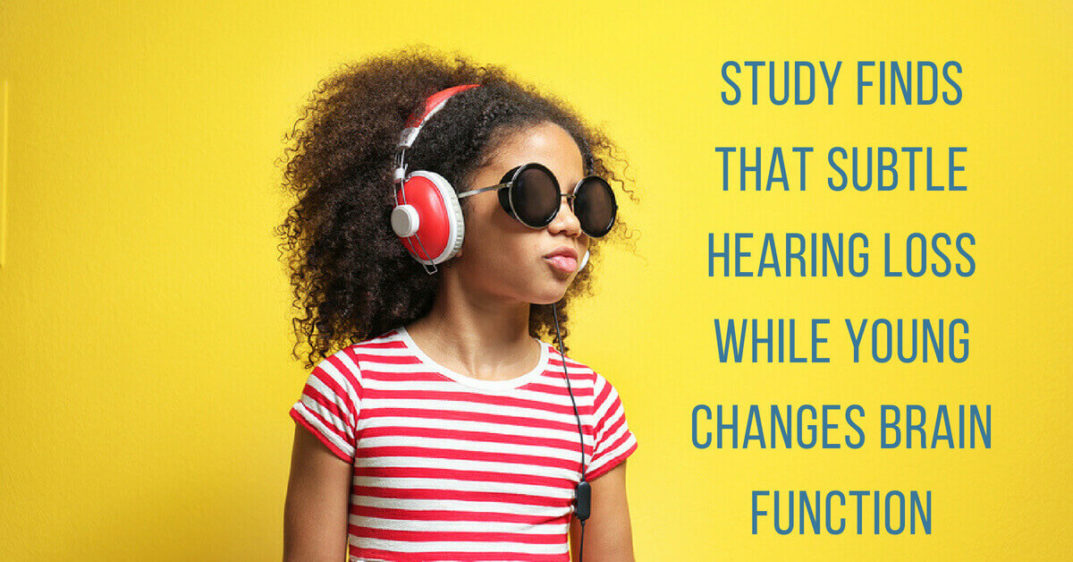Researchers from Ohio State University recently stumbled upon some interesting research regarding young adults, hearing loss, and the link to dementia. The study found that hearing loss in younger adults – hearing loss so subtle that those who have it do not notice it – could potentially lead to dementia later on down the road.
The Study
Lead researcher Yune Lee and his colleagues originally set out to discover how brain activity changes as it listens to and attempts to comprehend more and more complex sentences. The researchers included 35 healthy men and women between the ages of 18-41 years old. The study used functional magnetic resonance imaging (fMRI) to track brain activities as participants listened to sentences being read to them.
As a precaution, Lee and his team gave each of the participants a hearing assessment to ensure they did not have a hearing issue that would interfere with the results. There were some participants who had subtle hearing loss, but nothing severe enough to be noticed or exclude them from the research.
Subtle Hearing Loss = Not So Subtle Results
As participants listened to the sentences, researchers expected to find strong activity in the left hemisphere of the brain – which is the area that processes language when people are young and healthy. As humans start to age the brain begins to compensate for lost sounds by also using the right frontal cortex to process speech and language. This does not typically happen until people are at least fifty years or older.
During the study, those with no hearing loss used their left hemisphere exclusively. This was not the case for participants with subtle hearing loss. For them, processing not only occurred in the left hemisphere of the brain but also the right frontal lobe – the same pattern that happens to our brains as we age. Lee explains, “This isn’t about the ear—it’s about the brain, the cognitive process, and it shouldn’t be happening until people are at least older than 50” (https://medicalxpress.com/news/2018-05-subtle-loss-young-brain-function.html).
It is not yet clear what this means for youngsters with subtle hearing loss as they get older, however, countless studies have already connected hearing loss with an increased risk of dementia. Lee is also concerned about this connection, as he states,
“previous research shows that people with mild hearing loss are twice as likely to have dementia. And those with moderate to severe hearing loss have three to five times the risk,”
he said. One of the main schools of thought on the connection is that one’s brain is using cognitive energy that could be used for other things such as problem solving and memory – but is instead using it to strain to hear. If this begins to happen in younger brains – it makes sense that dementia may soon follow suit.
Protect Your Hearing and Protect Your Brain
It is imperative that teenagers and young adults be educated on the importance of hearing protection and the risks that are present during everyday activities. Teens and young adults tend to be especially attracted to noisy (and potentially dangerous) leisure activities such as loud bars, live music concerts, outrageous sporting events as well as blasting music through their personal listening devices. As a whole, young people should be more aware of the real dangers of hearing loss as well as the importance of wearing hearing protection to these events. If they will not wear hearing protection – these young people should limit their exposure to these loud environments as much as possible.
Young people should also be aware of how their earbuds or headphones could be damaging their hearing. A good way to test this is to put music at the volume you typically listen to and hold your earbuds at arm’s length away. If you can hear your music at this distance – it has the potential to damage your hearing. Youngsters should limit this potential exposure by learning to live by the 60/60 rule. This rule means limiting your music volume to 60% of its max, and limiting your listening time to only 60 minutes per day.
For young people, hearing protection may not be “cool”, but if they knew exposure has the potential to harm more than just their hearing – they may be more likely to participate in protective measures.
If you are concerned about your hearing abilities, contact us at Comprehensive Ear and Hearing for a consultation.


